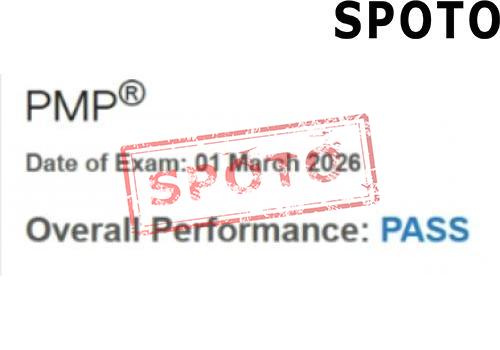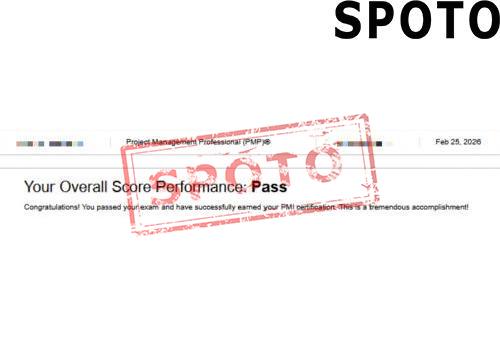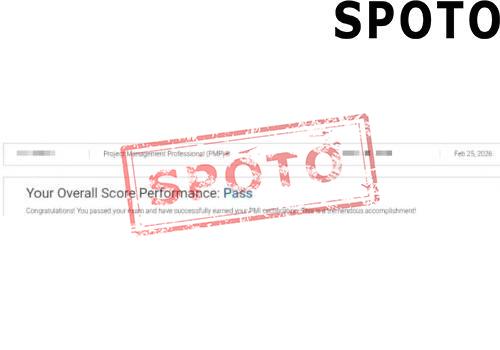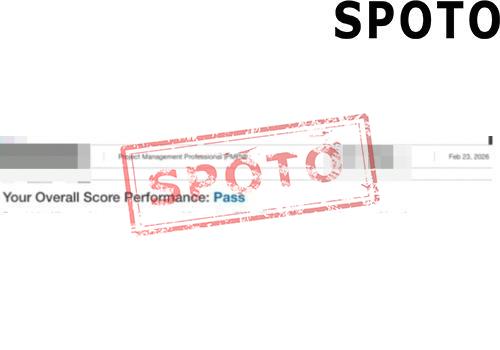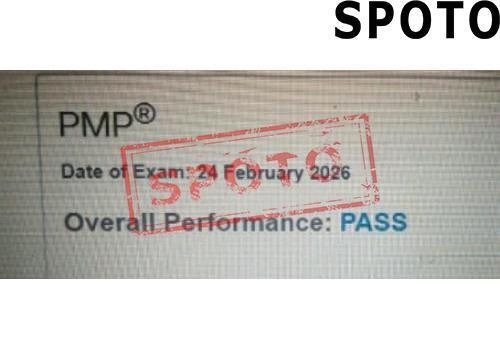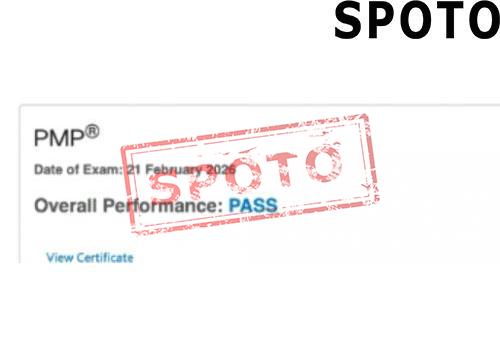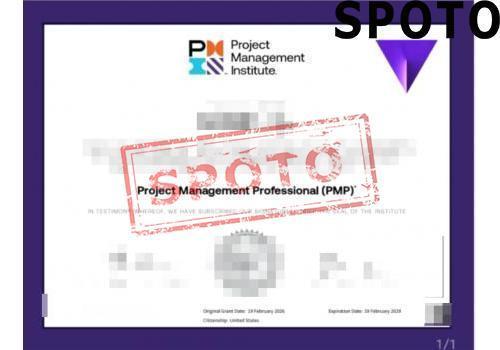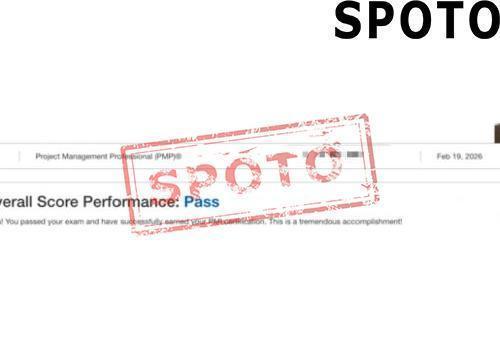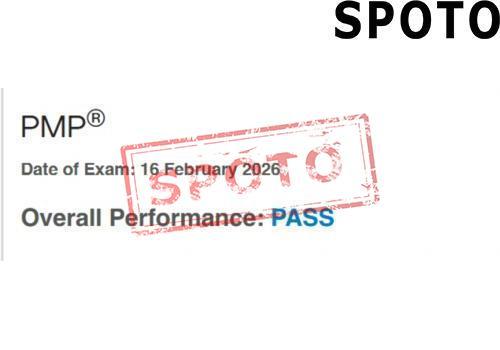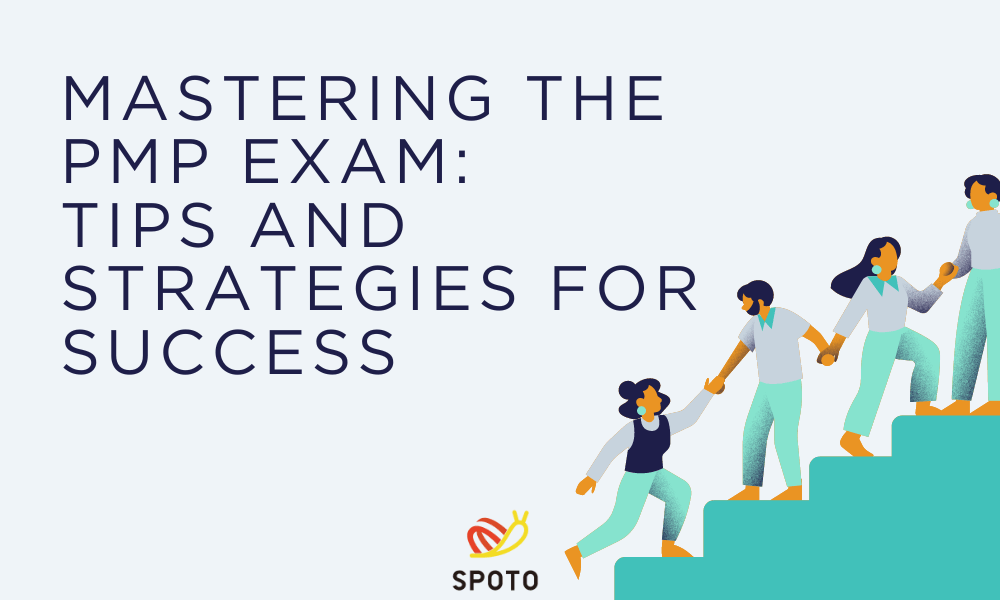
Table of Contents
Introduction to the PMP Exam
The Project Management Professional (PMP) certification stands as a beacon for individuals aiming to solidify their project management acumen on a global scale. This prestigious certification, recognized worldwide, not only enhances one's professional credibility but also opens doors to new career opportunities. The journey to obtaining this coveted credential, however, is marked by one's ability to conquer the challenging PMP exam.
Overview of the Project Management Professional (PMP) Exam
Renowned for its rigorous nature, the PMP exam assesses candidates' comprehension and application of project management principles. It spans various domains essential for the effective leadership and management of projects. The exam's structure demands a deep understanding of these principles, coupled with the ability to apply them in diverse real-world scenarios.
Free Testing, Explore PMP Exam Content!
Importance of Obtaining PMP Certification
Earning the PMP certification is a significant milestone in a project manager's career. It not only validates your expertise and skills in project management but also demonstrates your commitment to the profession. With the PMP credential, professionals can expect to see a significant impact on their career trajectory, including potential for higher income and more competitive positions within the industry.
Understanding the Exam Difficulty
The PMP exam is known for its challenging nature, testing candidates on various project management domains. The difficulty arises from its broad syllabus, requiring a deep understanding of numerous topics and the practical application of theoretical knowledge. Time management is crucial, as is a comprehensive grasp of the PMBOK® Guide. Candidates must also navigate situational questions that demand critical thinking and decision-making skills in complex project scenarios.
Pass the PMP Exam with the Latest PMP Dumps!
Effective Study Strategies
The journey to conquering the PMP exam requires a well-structured approach, where diligent planning and resource allocation play pivotal roles. Embarking on this educational voyage with a strategic mindset can significantly enhance your study efficacy, propelling you toward certification success.
Study Schedule and Time Management
Time, as a resource, demands judicious management, especially when preparing for an examination of the PMP's caliber. Crafting a bespoke study timetable that accommodates your personal and professional commitments can transform an overwhelming syllabus into manageable segments. Prioritize consistency over intensity; short, regular study periods are more effective than sporadic, prolonged sessions. By doing so, you solidify your grasp on complex concepts, ensuring they are etched into your memory.
Recommended Study Materials and Resources
Embarking on the PMP exam prep journey with the right set of tools is essential. Opt for a mix of official guides, such as the PMBOK® Guide - Sixth Edition, and supplementary resources including online courses, forums, and workshops. Peer interaction through study groups or forums like Project Management Institute (PMI) chapters can provide insights and clarify doubts, enriching your learning experience. Remember, diversity in study materials ensures a broader understanding and perspective on the exam content.
Tips for Maximizing Study Efficiency
- Active Learning: Engage with the material through practice questions, flashcards, and simulation exams. This approach aids in retaining information and understanding application over mere memorization.
- Set Clear Goals: Define specific, measurable, achievable, relevant, and time-bound (SMART) goals for each study session. This strategy ensures that you cover all necessary topics without feeling overwhelmed.
- Seek Feedback: Regularly assess your knowledge through practice tests. Use the results to adjust your study plan, focusing on areas that need improvement.
- Rest and Recuperate: Allow yourself short breaks and adequate rest. Mental fatigue can hinder your ability to absorb information, making breaks essential for maintaining peak cognitive performance.
Adhering to these strategic guidelines not only prepares you for the PMP exam but also instills a disciplined approach to professional and personal challenges alike. Let the pursuit of PMP certification be a testament to your commitment to excellence in project management.
Mastering the Exam Content
Embarking on the journey to conquer the PMP (Project Management Professional) exam requires a strategic understanding of its composition. The exam's architecture is divided into domains that mirror the critical elements of project management. Each domain contributes a distinct percentage towards the overall score, necessitating a balanced approach to study.
Breakdown of the Exam Domains and Their Respective Weights
- People: Encompassing 42% of the exam, this domain emphasizes the significance of leadership and team management skills.
- Process: Commanding a 50% share, it focuses on the technical aspects of project management.
- Business Environment: Making up the remaining 8%, this section tests your understanding of the connection between projects and organizational strategy.
Key Topics and Concepts to Focus On
To master the content of the PMP exam, prioritize areas that underpin the domains listed above. Deepen your knowledge in project leadership, team dynamics, and conflict resolution to excel in the 'People' domain. For the 'Process' domain, enhance your proficiency in project lifecycle management, methodology, and risk management. Lastly, understanding the strategic alignment of projects within an organization’s goals is vital for the 'Business Environment' segment.
Practice Questions and Simulations
Implementing practical exercises such as practice questions and simulations is indispensable for success. These tools offer insight into the exam's format, question style, and complexity, thus preparing you for the real test. Engage with a variety of simulation exams to familiarize yourself with time management and to identify areas requiring further study. Regularly revisiting these exercises will bolster your confidence and expertise, paving the way for a successful exam outcome.
Test-Taking Tips
Navigating the PMP exam's intricate terrain requires a blend of strategic acumen and mental fortitude. This section unveils methodologies to adeptly tackle varied question formats, optimize time allocation, and mitigate exam-induced apprehension.
Strategies for Answering Different Types of Questions
Embarking on the PMP exam journey, candidates encounter a spectrum of question types, each demanding a tailored approach. For situational queries, where practical application of knowledge is tested, breaking down the question to identify its core problem is crucial. For formula-based questions, familiarity with key formulas, coupled with practice, can enhance speed and accuracy. Understanding the terminology is pivotal for theoretical questions, as it aids in swiftly identifying the correct option among the plausible choices.
Time Management During the Exam
- Prioritize Wisely: Begin with questions that seem more straightforward or familiar to maximize early gains and boost confidence.
- Allocate Time Proportionately: Dedicate a measured amount of time to each question, ensuring no single query monopolizes your exam duration.
- Reserve Review Time: Set aside the final moments for revisiting marked questions, making use of the comprehensive review feature to ensure no stone is left unturned.
Managing Test Anxiety
Anxiety can be a formidable adversary in the PMP exam battleground. Adopting relaxation techniques such as deep breathing exercises can serve as a bulwark against stress. Furthermore, engaging in realistic simulation exercises can acclimatize candidates to the exam's pressure, significantly reducing apprehension levels. Ensuring adequate rest before the exam day and maintaining a healthy diet also contribute to optimizing mental performance and anxiety management.
Post-Exam Considerations
Upon the culmination of the PMP exam, the journey towards project management excellence is far from over. Candidates are advised to engage in a series of critical steps to both leverage their newly acquired knowledge and to prepare for the subsequent stages in their professional development.
Steps to Take After Completing the Exam
Initially, examinees should take a moment to reflect on their exam experience, jotting down areas that were particularly challenging or surprising. This reflection is not only a tool for personal growth but also serves as invaluable feedback for peers considering the PMP certification path. Furthermore, engaging with professional networks or project management forums to share insights and experiences can enhance one's understanding of the material and its application in real-world scenarios.
Subsequently, attention should turn towards Continuing Certification Requirements (CCR). The Project Management Institute (PMI) mandates the accumulation of Professional Development Units (PDUs) to maintain the PMP certification. Exploring avenues for professional development, such as workshops, seminars, and other educational opportunities, ensures that PMP holders remain at the forefront of project management methodologies and practices.
Waiting for Exam Results and Next Steps in the Certification Process
The anticipation of exam results is a period filled with eagerness and anxiety for many. While PMI typically releases exam scores within a few weeks post-examination, candidates should utilize this time to plan their next steps. Upon passing, it's crucial to complete the PMI certification process, which includes submitting any required documentation and confirming personal information for the certification registry.
In cases where the outcome is not favorable, it's important to view this not as a setback but as an opportunity for growth. PMI provides detailed feedback on performance across the exam domains, offering a clear roadmap for focused study and improvement. Candidates are encouraged to reassess their preparation strategies, possibly seeking additional resources or mentorship, before reattempting the exam.
In conclusion, whether celebrating a successful pass or regrouping after a challenge, the post-exam phase is a pivotal moment for professional development and strategic career planning. It marks the beginning of a commitment to lifelong learning and continuous improvement in the ever-evolving field of project management.
Conclusion
In synthesizing the insights gleaned from our exploration of the PMP exam, we've navigated through its comprehensive structure, pinpointed the rigorous challenges it presents, and underscored the invaluable nature of the PMP certification in bolstering one's project management career. We've demystified the exam's complexity by shedding light on effective study methodologies, highlighting critical content areas, and providing strategic advice for both preparation and test-taking phases.
Embarking on the journey to PMP certification is a testament to your commitment to professional excellence and a desire to scale new heights in project management. It's a path fraught with challenges, yet rich with the potential for personal and professional development. Remember, the essence of success in this endeavor lies not solely in memorizing information but in understanding and applying project management principles in real-world scenarios.
Drawing from the wisdom shared, it's crucial to approach your studies with discipline and perseverance, leveraging recommended resources and engaging deeply with the exam content. Practice diligently, simulate test environments, and refine your test-taking strategies to enhance your confidence and performance.
Final Words of Advice and Motivation
As you stand on the precipice of this challenging yet rewarding endeavor, let resilience be your guide. The journey to PMP certification, though rigorous, is a voyage of professional growth and achievement. Remember, every successful project manager was once a candidate, stepping into the examination room armed with hopes and equipped with knowledge and strategies shared here today.
In closing, embrace the journey ahead with optimism and determination. Your efforts to master the PMP exam are not just a step towards certification but a leap towards becoming a leader in the field of project management. Go forth with confidence, and let your studies and hard work illuminate your path to success.

